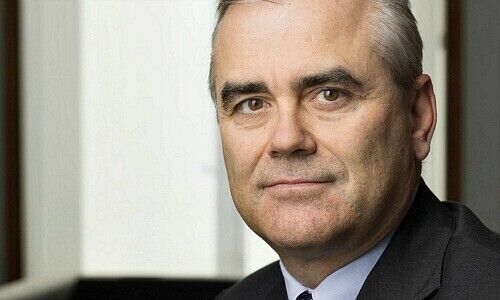Investor Pressure Mounts on Credit Suisse
CEO Thomas Gottstein is navigating Credit Suisse through a twin set of scandals that are likely to wipe out 2021's profits. Will shareholders come for him as they press for accountability?
Thomas Gottstein isn’t to be envied: four weeks into the job of running Credit Suisse, Covid-19 struck and the CEO was instrumental in a massive lending shore-up. By December of last year, he had told associates he felt somewhat more «settled» in the job after a turbulent 2020.
Shortly after his first anniversary at the helm, the Swiss bank was roiled by a $10.1 billion line of supply chain funds co-managed with now-insolvent Greensill. This week, another massive hole of reportedly as much as $5 billion (behind paywall) opened when Credit Suisse emerged in troubled Archegos.
Blasted By Shareholder
A prime broker client of the Swiss bank, Archegos had ramped up leverage via swaps or so-called contracts-for-difference, «Bloomberg» reported, possibly without owning the underlying securities it was betting on. The dual wreckage illustrates «risk control at every level in this bank must be examined and changes made where there are deficiencies,» Credit Suisse’s biggest shareholder, Harris Associates told «Bloomberg» (not available online).
Ethos Fund, a Swiss adviser to retail investors, said the twin scandals «should prompt shareholders not to grant the discharge to the board and executive management at the forthcoming annual general meeting,» in an email to finews.com.
Rushing Out The Door
Credit Suisse’s risk management, battered by Greensill, took another licking on Archegos, where the bank appears to have failed to limit credit lines and overlooked a hefty regulatory sanction in 2012. The bank is piecing through the wreckage of the hedge fund blow-up; it has reportedly put the Greensill hit at as much as $3 billion.
While Goldman Sachs and Morgan Stanley also served as prime brokers to Archegos, the two U.S. investment banks appeared to extract what cash collateral was around. Credit Suisse and Nomura, which puts its hit at $2 billion, didn't. In small mercies, Archegos is solely a prime brokerage client of Credit Suisse, a source familiar with the firm said, and not a private bank client as well, as Greensill founder Lex Greensill is.
2021 Wins Wiped Out
This effectively means that Credit Suisse’s net profit for the year is likely already wiped out by the two problems – despite a record start to 2021, and no matter how well the bank does for the rest of the year. Gottstein faces a grueling nine-month marathon to year-end with this certainty – on top of regulatory investigations over Greensill and «spygate,» of course.
Shareholders are beginning to feel they aren’t being compensated for the level of risk they are asked to stomach, said Michael Kunz, a banking analyst with local lender Zuercher Kantonalbank. «The events around the Greensill funds and now hedge fund Archegos threaten to decimate the operational performance of Credit Suisse,» Kunz said.
Capital Call Needed?
Will Credit Suisse need to tap shareholders for capital? It won't comment, but the bank will almost certainly have to stop buying back its own shares in an ongoing repurchase of up to 1.5 billion Swiss francs ($1.6 billion). As of Friday, it was nearly 274 million francs into the program.
The other certainty is that a board-led review of Greensill, likely now to be widened to Archegos given the similar lapse is risk, will herald some changes. The question of accountability looms for disgruntled shareholders like Herro and Ethos. As CEO, can Gottstein escape it?
As long-standing Chairman Urs Rohner exits in four weeks against the shambolic backdrop, consequences for management will be left to António Horta-Osório. The Portuguese Lloyds boss is likely to draw up his own strategy review, while Rohner should «forgo any further compensation from Credit Suisse,» Harris Associates’ David Herro said.
Samuel Gerber contributed reporting




























